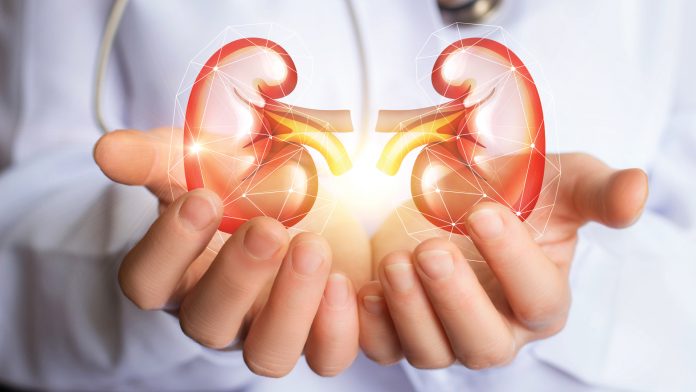
Health Europa looks at the calls from Europe’s associations and alliances for the prevention, detection and development of a variety of treatments for chronic kidney disease.
With one in three Europeans at an increased risk of developing chronic kidney disease (CKD) and one in ten with impaired kidney function affecting their health status, the demand for CKD to be focused on as a health issue across Europe is increasing.
CKD, as well as chronic kidney failure, is the term used to describe the gradual loss of kidney function. Typically, the kidneys filter waste and excess fluids from the blood, excreting this from the body through urine. But once CKD reaches an advanced stage, harmful levels of fluid, electrolytes and waste, can begin to build in the body. CKD embraces the broad majority of renal conditions and is often found through chance in medical investigations.
Here, Health Europa looks at the calls from Europe’s associations and alliances for prevention, detection and variety of treatments.
Pan-European efforts to address CKD
The European Kidney Health Alliance (EKHA) is one of Europe’s alliances which aims to tackle the health issue that is CKD. Through the shared efforts of stakeholders, EKHA members work to provide solutions to CKD, whether that be through effective prevention, care pathways for appropriate and affordable treatment, or advocating for high-quality care.
The EKHA believes that it is vital for kidney health and disease to be considered at a European level, as well as emphasising the crucial role of the European Commission and Parliament in assisting national governments in addressing the individual challenges posed by CKD.
Working co-operatively, the EKHA works with the aim of:
- Reducing both the incidence and impact of kidney disease in Europe;
- Improving treatment for CKD patients; and
- Increasing education, training and research.
Prevention and detection
Potential causes of chronic kidney disease range from poorly controlled blood pressure and diabetes to large kidney stones or prostate disease. In August 2015, the EKHA published its report ‘Recommendations for Sustainable Kidney Care’, which covers four important priorities, among them prevention and early detection, increasing access to transplantation, treatment reimbursement strategies, and choice of renal replacement therapy (RRT).
It outlines that in efforts to minimise the risks to people or reduce the impact of CKD:
- Prevention for the general population should focus on actions which stimulate and encourage healthy lifestyles;
- Standardised approaches to CKD screening should be implemented across Europe;
- Targeted CKD screening programmes should be implemented for those at an increased level of risk, optimising cost-effectiveness;
- A robust, pan-European registry of stages three to four of CKD should be created as an integral component of effective early detection programmes; and
- Once detected, appropriate therapeutic measures should be put in place in order to slow, or stop, CKD progression through the means of lifestyle changes.
Choice of treatment
In CKD patients, dialysis is used to remove both waste and excess fluids from the blood when the kidneys cease to function effectively. Currently, dialysis is offered in a hospital setting on a large scale, whilst home dialysis is disregarded in some member states across Europe. As recorded in the EKHA report, the most common variation of the procedure can cost up to €80,000 per year for each patient. Those patients, and healthcare systems, who have their dialysis at home may see a variety of benefits, including:
- Less travel;
- Being able to return to work or continue there;
- Improved quality of life and productivity; and
- Reduced costs of CKD to the healthcare system.
For those patients who have not received treatment through dialysis or transplantation, whether this stems from their own choice or poor condition, a route which does not involve dialysis or transplantation should be offered. This care pathway should be in line with the following recommendations by EKHA:
- Renal replacement therapy should only be initiated following rigorous patient selection, whilst ensuring that the timing of this therapy is appropriate;
- RRT should only be initiated when necessary, in alignment with symptoms of end-stage CKD, such as fluid overload and malnutrition; and
- The decision to begin, or avoid, RRT for patients with an unpredictable prognosis should only be made following an open and supportive dialogue with both the patient and their family, enabling them to make an informed decision, fully aware of the advantages and disadvantages of each option and its impact on their quality of life.
Increasing access to transplantation
As the gold standard of treatment for end-stage kidney disease for suitable patients, transplantation provides better clinical outcomes than dialysis, whilst substantially reducing the healthcare costs of CKD. The EKHA recommends that:
- Access to transplantation should be guaranteed equally to appropriate candidates;
- Transplantation should be encouraged and promoted, including through the means of EU strategies;
- Living donor transplantation should be encouraged;
- Deceased donor transplantation should be encouraged by improving awareness; and
- Those member states which fall behind on either living or deceased donor transplantation should be supported, amongst others.
This article will appear in issue 5 of Health Europa Quarterly, which will be published in May.









